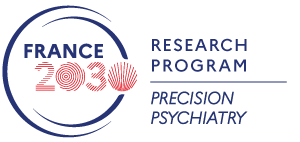Build a longitudinal cohort of patients with in-depth phenotyping
Scientific director:
Marion Leboyer
Coordinating institution:
Inserm
French Minds, observational, multicenter cohort, deep-phenotyping, bipolar disorders, depression, schizophrenia, autism, transnosographical, electrophysiology, genomics, immunology, brain imaging, digital, environment, pathophysiology, comorbidity
- Budget: 42 M€
- Duration: 60 months
- Number: ANR-22-EXPR-0013
Current psychiatric classifications, based on a categorical approach, present a high degree of clinical and biological heterogeneity, limiting the effectiveness of treatments. Precision psychiatry aims to overcome these limitations by integrating biomarkers to identify homogeneous subgroups, refine diagnostic classifications and with time develop targeted treatments.
In this context, PEPR PROPSY supports French Minds, a national longitudinal and multimodal cohort of 10,000 subjects, including patients with bipolar disorder, schizophrenia, treatment-resistant depression, and autism spectrum disorders, as well as controls. The aim is to identify transdiagnostic profiles, focusing on social withdrawal and anhedonia, two central and often debilitating dimensions of these pathologies.
The study, conducted in 35 French hospitals, is based on an 12-month follow-up including:
- Two in-person visits one year apart, with clinical, biological, neuropsychological assessments, and brain MRIs.
- Monthly digital assessments, via online questionnaires and connected watches, to collect data on sleep, activity and symptom variations in real time.
Biological samples will be analyzed to identify multi-omics biomarkers (genomics, transcriptomics, metabolomics, immunology, microbiota), notably via CEA research platforms (CATI, MétaboHub, CNRGH).
The integration of these multimodal data will be centralized in a health data warehouse and exploited by artificial intelligence and machine learning algorithms, in order to:
- Identify homogeneous subgroups and transnosographic dimensions.
- Clarify individual trajectories of psychiatric disorders.
- Develop new therapeutic targets and personalized strategies.
Thanks to this innovative approach, French Minds represents a major step towards precision psychiatry, based on robust data that can be exploited on a large scale.
The project mobilizes a broad network of expertise, including the Expert Centers coordinated by the Fondation FondaMental, the university hospital centers of the RHU PsyCARE, and the Clinical Investigation Centers (CIC).
Ap-HP, CEA, Fondation FondaMental
Are you a patient interested in joining the cohort?
Contact us for more information on inclusion criteria and how to get involved.

